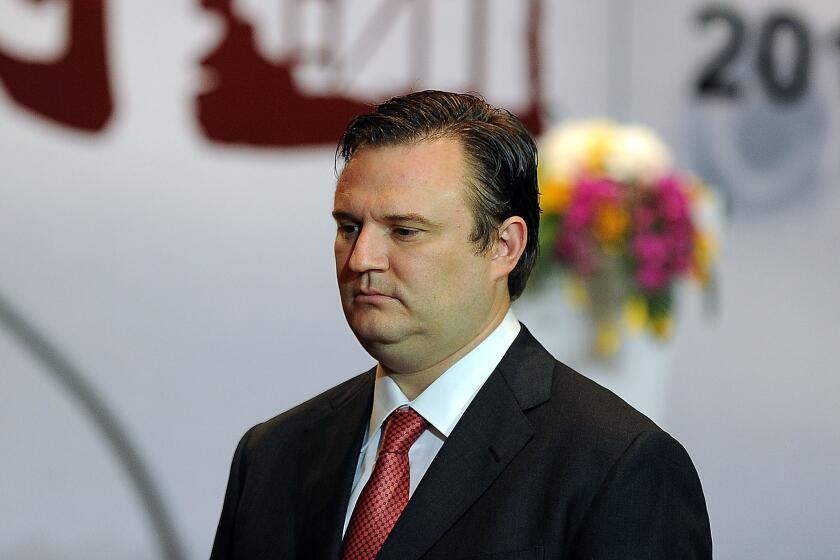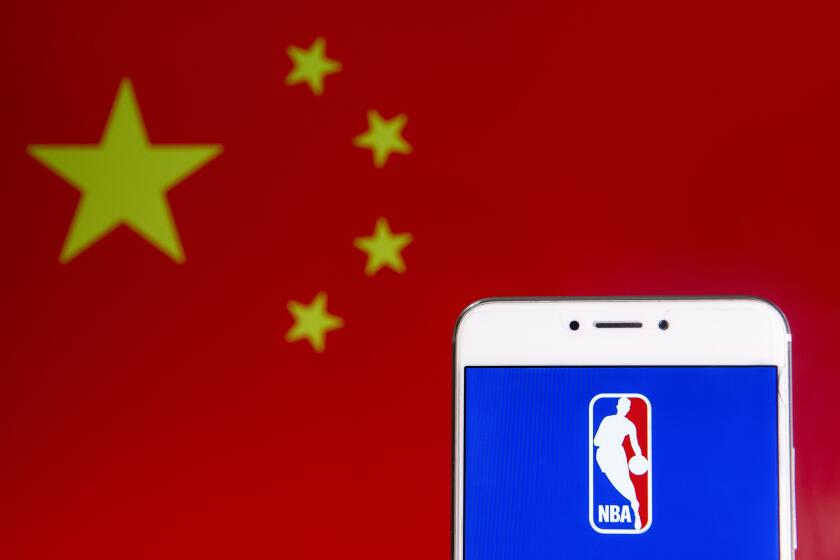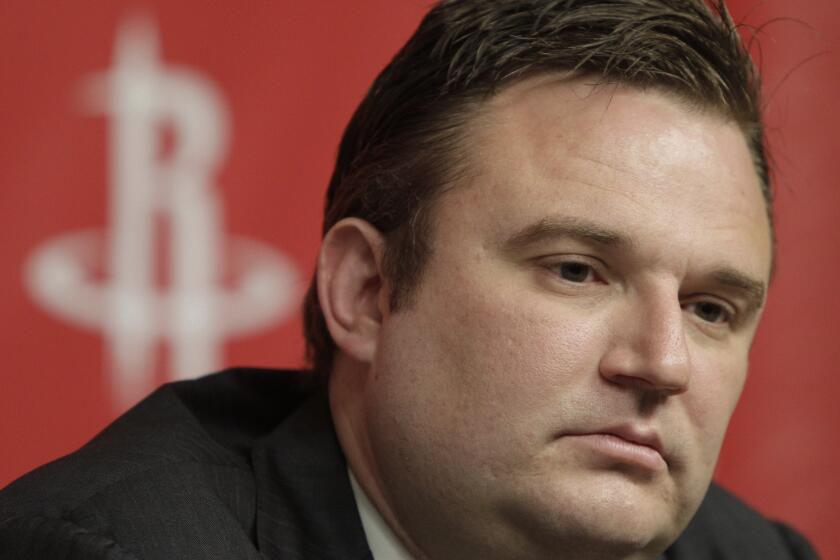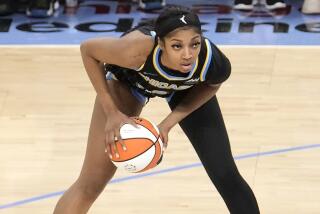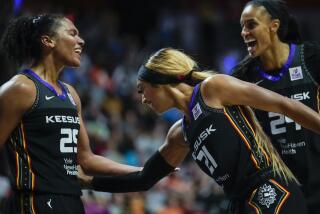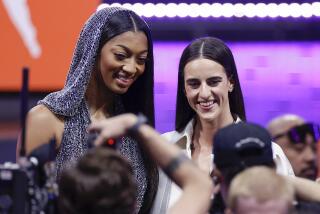Could a tweet sink the NBAâs business relationships in China? Itâs complicated
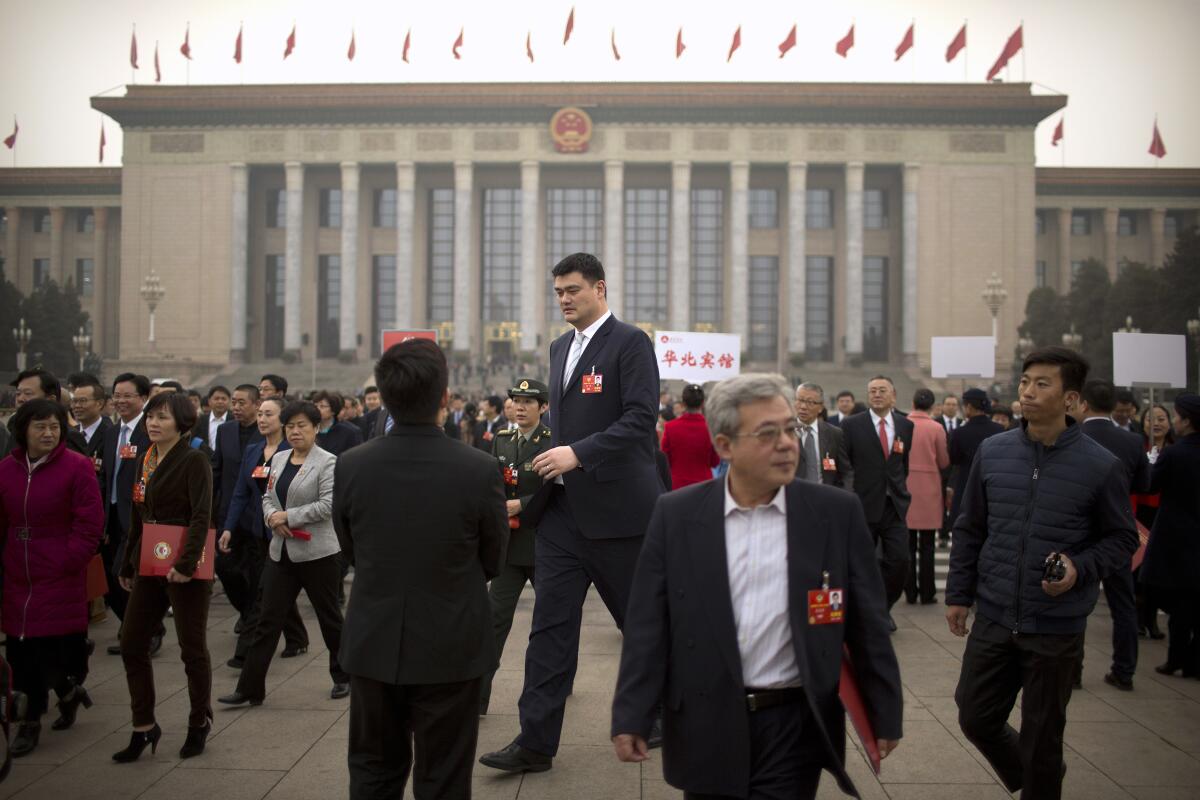
Since the 1992 Olympics, when the NBAâs best players ran all over the rest of the world, the league has sought to take basketball â its product in particular â globally. Its partnerships in China, where the game is wildly popular, have been a pivotal part of that expansion strategy.
But a single tweet from a general manager supporting protesters in Hong Kong could threaten that relationship and affect the way the public here and abroad views the leagueâs intentions on social issues.
On Friday, Houston Rockets GM Daryl Morey tweeted an image â since deleted â that read âFight for Freedom. Stand with Hong Kong.â
Mass protests began in Hong Kong in June over proposed legislation that would allow for extradition from Hong Kong to mainland China â a policy that could have impacted the regionâs relative autonomy. The bill was withdrawn in September, but often-violent clashes between authorities and protesters have continued.
Those words Morey tweeted caused a swell of geopolitical consequences that soon hit the NBA like a tidal wave, jeopardizing billions in business deals with companies in apparel and broadcasting. Even as increasingly violent demonstrations rage against the countryâs authoritarian government, the message was clear: if you want to do business in China, you donât criticize the government.
The Rockets, who have been among the most popular teams in China since they drafted Yao Ming with the first pick of the 2002 draft, were soon being erased from an enormous and still relatively untapped market the league and American apparel companies have coveted for years. Tencent, a Shenzhen-based technology giant that earlier this summer extended its partnership with the NBA to 2024, decided to not air the teamâs games.
The Brooklyn Netsâ scheduled visit to a Shanghai area school has been canceled by the Chinese government, according to an NBA official.
How the controversy might affect the Lakers isnât clear. The team was expected to arrive in China on Tuesday afternoon (Monday in Los Angeles) and is scheduled to play two games against the Brooklyn Nets, one in Shanghai, the other in Shenzhen, which is near Hong Kong. Late Monday, an NBA official said the Netsâ scheduled visit to a Shanghai-area school had been canceled.
The NBA sought to distance itself from Moreyâs comments, starting with Rockets owner Tilman Fertitta, who posted his own tweet saying his general manager âdoesnât speak for the Houston Rocketsâ and that the Rockets are ânot a political organization.â
In a video posted by Chinese-run state television, James Harden, standing next to Russell Westbrook, apologized to China and its fans.
âWe love China. We love playing there,â Harden said. âI know, for both of us individually, we go there once or twice a year. They show us the most love. We love everything theyâre about. And we appreciate the support they give us individually and the organization. You know we love you.â
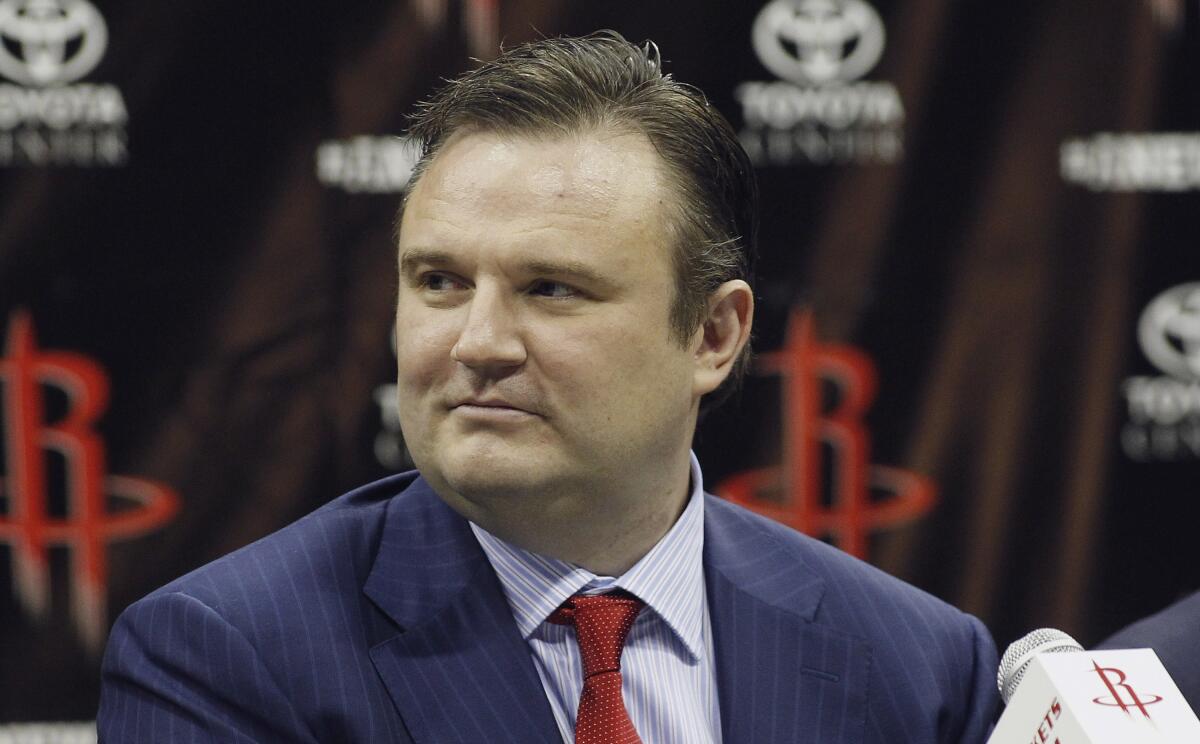
The NBA on Sunday issued a statement acknowledging that Moreyâs statement had âdeeply offended many of our friends and fans in China, which is regrettable.â However, the translation of that statement on Weibo, Chinaâs micro-blogging site, had the league saying it was âgreatly disappointedâ at Moreyâs âinappropriate speech.â Asked to clarify, Mike Bass, the leagueâs vice president of communications, told USA Today, âWe have seen various interpretations of the translation of the Mandarin version, but our statement in English is the leagueâs official statement.â
Morey also tweeted an explanation: âI did not intend my tweet to cause any offense to Rockets fans and friends of mine in China. I was merely voicing one thought, based on one interpretation, of one complicated event. I have had a lot of opportunity since that tweet to hear and consider other perspectives.
âI have always appreciated the significant support our Chinese fans and sponsors have provided and I would hope that those who are upset will know that offending or misunderstanding them was not my intention. My tweets are my own and in no way represent the Rockets or the NBA.â
One of the NBAâs other owners, Brooklynâs Joe Tsai, defended Chinaâs reaction in a lengthy Facebook post that categorized Hong Kong as a âthird-rail issueâ in China.
âWhen hundreds of millions of fans are furious over an issue, the league, and anyone associated with the NBA, will have to pay attention. As a Governor of one of the 30 NBA teams, and a Chinese having spent a good part of my professional life in China, I need to speak up,â Tsai wrote. âWhat is the problem with people freely expressing their opinion? This freedom is an inherent American value and the NBA has been very progressive in allowing players and other constituents a platform to speak out on issues. The problem is, there are certain topics that are third-rail issues in certain countries, societies and communities.
The NBAâs relationship with China was an issue even before Houston Rockets general manager Daryl Moreyâs tweet in support of the Hong Kong protests.
âSupporting a separatist movement in a Chinese territory is one of those third-rail issues, not only for the Chinese government, but also for all citizens in China.â
Morey is not the first public figure to anger the Chinese people and government by wading, either purposefully or accidentally, into political waters. Actors and actresses who have supported protesters have faced blacklisting. Jazz musician Kenny G â who was wildly popular in China â years ago sparked outrage by posing for photos with pro-democracy protesters in Hong Kong. More recently, a $14-an-hour Marriott employee working social media accounts caused another tiff when he simply âlikedâ a tweet praising the chain for listing Tibet as an independent country.
Itâs a complex situation for the NBA, a league thatâs increasingly become a vehicle for progressive causes ranging from ending gun violence and police brutality to education reform to human rights. In 2016, the league removed its All-Star game from Charlotte after North Carolinaâs controversial âbathroom billâ left transgender people exposed to discrimination and without legal protections. The bill was later partially repealed.
It felt like a watershed moment â a professional sports league coming to the aid of a marginalized group and helping effect change. Three years later, itâs being thrown back as an example of the NBAâs hypocrisy.
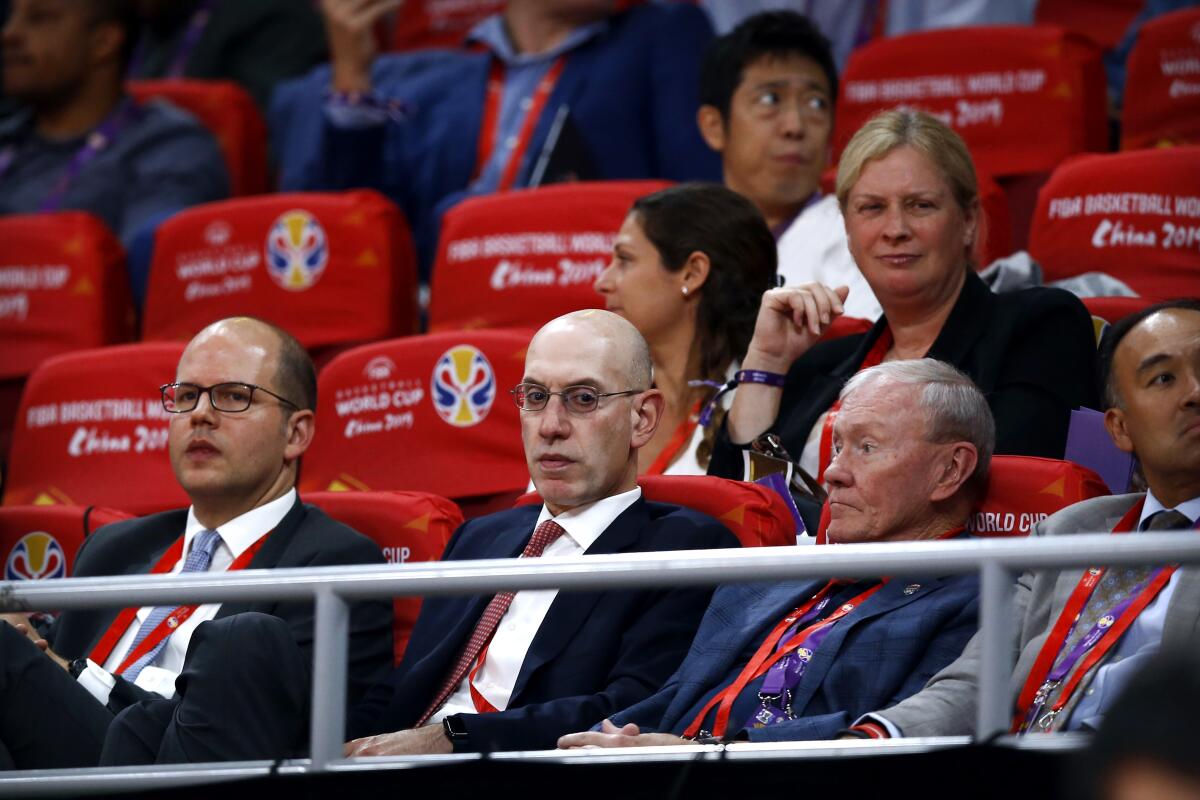
On Monday, Democrats and Republicans alike criticized the NBAâs backpedaling.
âNo one should implement a gag rule on Americans speaking out for freedom,â Senate Minority leader Chuck Schumer (D-New York) tweeted. âI stand with the people of Hong Kong in their pursuit of democratic rights. I stand with Americans who want to voice their support for the people of Hong Kong. Unacceptable.â
Sen. Marco Rubio (R-Florida) tweeted that the NBA was throwing Morey âunder the bus to please the Communist Chinese Govt. Disgusting.â Sen. Rick Scott (R-Florida) chimed in with âItâs clear that the @NBA is more interested in money than human rights.â
NBA players have long made trips to China in the offseason where theyâre met with âBeatle-maniaâ levels of excitement. The trips, which are almost entirely sponsored by shoe companies, have become a necessary stop for superstar players that are promoting their brands.
Houston Rockets general manager Daryl Morey tried Sunday to defuse the rapidly growing fallout over his deleted tweet that showed support for Hong Kong anti-government protesters.
And itâs forced the NBA to figure out a way to explain why Moreyâs tweet is different than a star player standing up to President Trump online.
Speaking in Japan, NBA commissioner Adam Silver said he supports Moreyâs and Tsaiâs ability to express their views.
âThese are complex issues; they donât lend themselves easily to social media. I canât ultimately run the NBA based on trying to satisfy everyone on Twitter,â Silver said. âFor those who choose also to engage, theyâll see that we are dealing with a complex set of issues. And I will just add that the fact that we have apologized to fans in China is not inconsistent with supporting someoneâs right to have a point of view.â
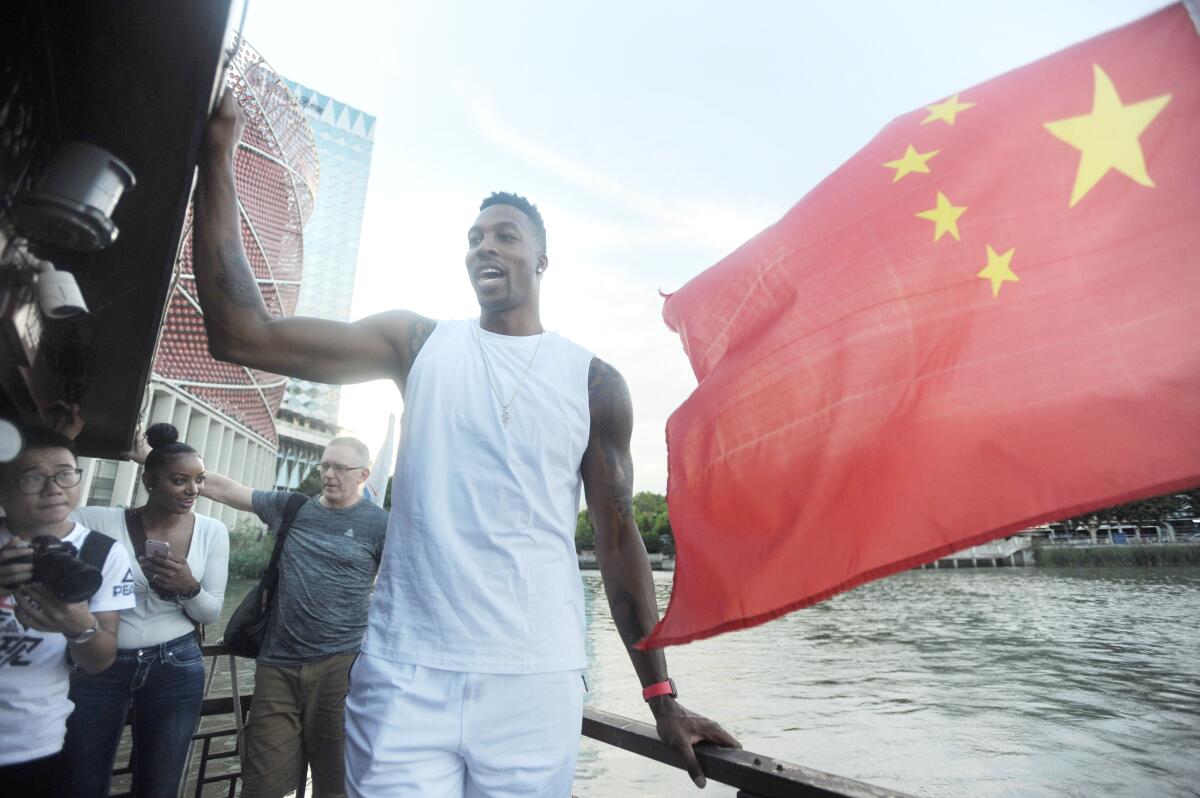
The reaction to the tweet is indicative of the issues American businesses have to navigate if they wish to capitalize on Chinaâs massive spending power. This was a teamâs relatively anonymous general manager â not a star player, not a Chinese icon, not even a celebrity â voicing an opinion. So who could blame someone like LeBron James should he carefully sidestep questions related to the same topic this week. That seems like more the job of a diplomat than a basketball player, even one as socially conscious as James.
Clearly, the NBA can be an utopic place â one where racism is met head on, where sexism isnât tolerated, where minority groups are celebrated and embraced. Those types of issues have been a driving force for the NBAâs off-court work for years.
But this situation should hit the NBA like a steel-chair to the head. Because while the league can enjoy the identity of progressiveness driven by its players, itâs more than that.
Itâs a business. A big one, with a lot of moving parts. In situations like this, thatâs impossible to ignore.
More to Read
Go beyond the scoreboard
Get the latest on L.A.'s teams in the daily Sports Report newsletter.
You may occasionally receive promotional content from the Los Angeles Times.

